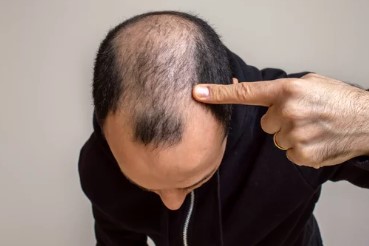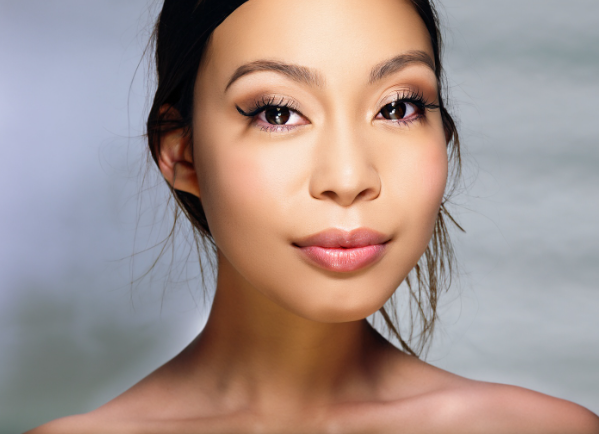Hair fall is one of the most common issues now – a – days. It is natural to lose some hair strands but when you see patches, no regrowth of hair, and hair thinning that is an alarming sign that you are having severe hair fall.
Hair fall can occur due to various reasons and during various conditions. Factors affecting hair fall may be environmental, physical, or emotional. Let us understand in detail what are the causes, types, and treatments for hair fall.

Causes Of Hair Fall:
Here are some possible causes and general tips to address hair fall:
Genetics: Family history plays a significant role in hair loss. If you have a genetic predisposition to hair loss, it may be more challenging to prevent or reverse it. However, various treatment options are available to manage genetic hair loss, such as medication or hair treatment plans.
Hormonal changes: Hormonal imbalances due to factors like pregnancy, childbirth, menopause, or thyroid disorders can contribute to hair fall. Treating the underlying hormonal condition may help reduce hair loss.
Nutritional deficiencies: Inadequate intake of essential nutrients, such as iron, biotin, zinc, and vitamins A, D, and E, can impact hair health. Maintaining a balanced diet with a focus on nutrient-rich foods can support healthy hair growth.
Stress and lifestyle factors: High stress levels, poor sleep habits, and unhealthy lifestyle choices can contribute to hairfall. Managing stress through relaxation techniques, getting adequate sleep, and adopting a healthy lifestyle can positively impact hair health.
Scalp and hair care: Using harsh chemicals, frequent heat styling, tight hairstyles, and not properly caring for the scalp can lead to hair damage and breakage. Opt for gentle hair care products, avoid excessive heat, and give your scalp proper nourishment and hygiene.
Medical conditions and medications: Certain medical conditions like alopecia areata, scalp infections, or side effects of medications can cause hair loss. Treating the underlying condition or adjusting medication with the guidance of a healthcare professional is crucial in such cases.
Consult a healthcare professional: If you are experiencing excessive or prolonged hairfall, it is recommended to consult a dermatologist or trichologist. They can evaluate your condition, identify any underlying causes, and recommend appropriate treatments or lifestyle changes.
Types of Hairfall:

Androgenetic alopecia (Male/Female pattern baldness): This is the most common type of hair loss, characterized by a gradual thinning of hair over time. It is often seen in males with crown-shaped baldness.
Telogen effluvium: This condition occurs when a large number of hair follicles enter the resting (telogen) phase simultaneously, leading to excessive shedding. It is usually caused due to stress, nutritional deficiencies, hormonal imbalances, or some underlying health issues.
Traction alopecia: Caused by excessive tension or pulling on the hair due to tight hairstyles or hair accessories.
Alopecia areata: It is an autoimmune condition characterized by patchy hair loss on the scalp or other areas of the body.
Scalp infections: Fungal or bacterial infections can lead to hairfall. Scalp infections can also cause dandruff problems thus severing hairfall and thinning.
Treatments For Hairfall:

If you have hairfall due to a genetic issue then, FDA-approved medications such as minoxidil (topical) and finasteride (oral) can help slow down hair loss and promote hair regrowth.
Stress management: Identifying and addressing the underlying causes of stress, and adopting stress management techniques such as exercise, meditation, or therapy.
Nutritional evaluation: Ensuring a well-balanced diet with sufficient intake of vitamins, minerals, and proteins.
Treatment of underlying medical conditions: Addressing any underlying medical issues, hormonal imbalances, or nutritional deficiencies contributing to telogen effluvium.
Avoid tight hairstyles: Opt for loose hairstyles and avoid excessive pulling or tension on the hair.
Giving hair breaks: Allowing the hair to rest from tight hairstyles and minimizing the use of heat styling tools.
Scalp care: Maintaining a healthy scalp through regular cleansing and avoiding harsh chemicals. Practicing good scalp hygiene, keeping the scalp clean and dry.
Hairfall treatments for every individual varies. It is ideal to consult a dermatologist or trichologist is crucial to obtain an accurate diagnosis and personalized treatment plan for your specific condition.


